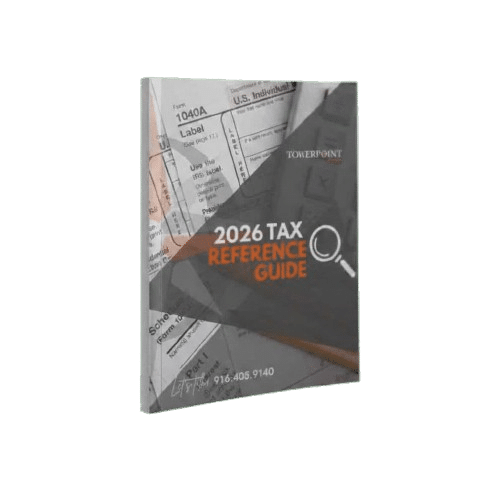Why This Matters in 2025
In January 2025, President Joe Biden signed the Social Security Fairness Act, fulfilling a long-sought reform that affects how social security benefits are calculated for millions of public employees and other public servants. The Fairness Act repeals two burdensome provisions, the Windfall Elimination Provision (WEP) and the Government Pension Offset (GPO), which for decades reduced retirement benefits for people who earned a government pension from non-Social Security jobs. With the new law in place, many workers will see greater economic security and brighter retirement income planning opportunities, allowing them to retire with dignity after working hard all their lives.
For individuals who have had portions of their social security benefits reduced or offset, this rewrite of the rules is a turning point. It not only restores full social security benefits for some, but also ensures more predictable monthly benefit payments moving forward. At Towerpoint Wealth, we believe this change demands a careful review of each client’s plan.
In this post we walk you through: whether President Biden really signed the law, what the Social Security Fairness Act does, who is affected, when payments begin, how this impacts retirement and tax planning, and what steps you should take now. For more information or to visit the Social Security Administration’s resources, we encourage you to stay informed and take other actions as needed.
What Is the Social Security Fairness Act?

The Legislative Breakthrough
The Social Security Fairness Act (H.R. 82) was enacted into law on January 5, 2025 when President Joe Biden signed the Fairness Act into law at the White House. That answered the question, “did Biden sign the Social Security Fairness Act,” with a resounding yes. The law reforms Title II of the Social Security Act, eliminating two penalties that have long affected public sector workers with non-covered employment.
The Fairness Act achieves the following key changes:
- It fully repeals the Windfall Elimination Provision that reduced Social Security benefits for individuals who had a government pension from jobs not covered by Social Security.
- It fully repeals the Government Pension Offset which canceled or reduced surviving spouse’s benefits or spouse benefits when a pension was based on non-covered work.
- It makes the changes retroactive to benefits payable after December 2023, meaning the social security benefits payable beginning January 2024 and onward will no longer be penalized.
In short, the Social Security Fairness Act restores fairness in how Social Security interacts with government pension systems, especially for retired public servants, educators, police officers, firefighters, and other public employees whose pension was based on work not covered by Social Security.
Understanding WEP and GPO and Their Effect on Benefits

What Was the Windfall Elimination Provision (WEP)?
The Windfall Elimination Provision was designed to adjust social security benefits downward when a person also received a government pension from a job that did not pay into Social Security. It targeted workers who had earned earned social security benefits via other employment, but the formula for their primary insurance amount (PIA) was modified downward under WEP.
Under WEP, the first bend point in the formula (the portion of your earnings that would ordinarily be multiplied by 90 percent) was scaled back to as low as 40 percent based on years of substantial earnings. The provision limited the “windfall” of high benefit amounts for those who had only a modest Social Security record but a full pension from non-covered work.
In practice, WEP significantly reduced the monthly benefit payments for many public sector workers who otherwise would have qualified for higher retirement benefits from Social Security.
What Was the Government Pension Offset (GPO)?
The Government Pension Offset applied to spousal or surviving spouse’s benefits when the spouse or surviving spouse also received a government pension from non-covered employment. It reduced Social Security benefits by two-thirds of that government pension, effectively eliminating many surviving spouse’s benefits or spouse’s benefits altogether.
For example, a retired teacher might have qualified for Social Security spousal benefits through a spouse, but the GPO could completely cancel or drastically reduce those benefits because of the teacher’s government pension.
These two provisions had long drawn criticism from labor unions, public employee associations such as the National Active and Retired Federal Employees Association, and countless retirees and surviving spouses who felt penalized for a lifetime of public service.
Who Benefits Under the New Law?
Types of Public Employees Affected
The repeal of WEP and GPO helps public sector workers and other public employees whose pension was based on non-covered work, including:
- Teachers in states that historically did not enroll them in Social Security
- Police officers, firefighters, and other first responders whose jobs often relied on independent pension systems
- Federal retirees under older systems such as the Civil Service Retirement System (CSRS)
- State and local government employees whose employment was partly in Social Security-covered jobs and partly in non-covered roles
- Survivors and spouses previously penalized by GPO who now become eligible for surviving spouse’s benefits again
Only those whose benefits were previously reduced by WEP or GPO will see benefit increases. Public employees whose work was fully covered by Social Security were never penalized and thus won’t see changes.
Estimated Benefit Increases and Retroactive Payments
While individual outcomes vary, early estimates suggest an average monthly increase of around $360 among affected beneficiaries. Some may see higher increases depending on pension size, work history, or eligibility for spousal or survivor benefits.
The law requires the Social Security Administration (SSA) to issue retroactive benefits for the full difference dating back to January 2024.
As of July 7, 2025, the Social Security Administration had sent over 3.1 million payments totaling $17 billion to affected beneficiaries.
Many most affected beneficiaries began receiving their new monthly benefit amount in April 2025 for their March benefit.
Beneficiaries also receive mailed notice from Social Security explaining the benefit change and new monthly payment amount. Some may receive two mailed notices, one when WEP/GPO is removed, and a second when the monthly benefit is updated.
A bill signing like this is historic in scope, and it has real financial consequences for retirees and public service professionals.
When Do Payments Start & How They’ll Be Delivered

Key Timeline for Implementation
- January 5, 2025: President Joe Biden signs the Social Security Fairness Act into law at the White House
- February 25, 2025: Social Security Administration begins adjusting monthly benefit payments for those whose benefits have been affected by WEP or GPO
- April 2025: Many monthly benefits reflecting the new monthly benefit amount begin arriving (for March 2025 benefit)
- Spring–Summer 2025: Retroactive benefits are deposited and mailed notices are sent
- July 7, 2025: SSA reports completing processing and distribution of thousands of payments ahead of schedule
How Payments Will Reach You
Eligible individuals will receive deposit of retroactive amounts into the bank account SSA has on file. That means if your direct deposit information is current, you don’t need to take additional action.
If your address or mailing address is outdated, log in to your my Social Security account or contact the Social Security Administration to correct it.
In some cases, the retroactive benefit may arrive before the mailed notice. At times an early mailed notice will inform you that WEP or GPO has been removed from your record, with a later notice confirming your updated monthly benefit amount.
If you had not previously filed for surviving spouse’s benefits because GPO disqualified you, you may now reapply. Social Security is processing new claims under the Social Security Fairness Act for such cases.
How This Changes Retirement & Wealth Planning

Income Planning with Higher Baseline Benefits
With full social security benefits restored for many, your projected Social Security income becomes both more stable and more valuable. This additional monthly benefits stream may allow you to delay withdrawals from retirement accounts, preserve assets, or reduce risk in your portfolio. Allocation of other income sources should be revisited now that your monthly benefit amount may be more generous than earlier assumptions.
Whether you are a current retiree or still building your plan, your baseline retirement income just became more robust.
Tax & Withdrawal Strategy Implications
An increased Social Security benefit can push you into higher tax thresholds, potentially increasing the taxable portion of your Social Security benefits. You may need to reexamine your Roth conversion strategy, required minimum distributions, and tax-efficient withdrawals from taxable accounts.
Because your benefit is now higher, strategic coordination is essential, especially for clients who mix pensions, Social Security, and investment income.
Pension + Social Security = New Planning Landscape
For many retired public servants, the old thinking was that your government pension and Social Security could not both deliver full value because of WEP or GPO. Now those limitations are lifted. You can fully integrate your pension and Social Security in retirement planning.
Spouse and survivor benefit strategies should be revisited. Some case scenarios that were previously unviable under GPO may now become viable. Estate planning and legacy strategies may shift thanks to the restored benefits.
This is especially true for parents of widows or widowers, ex-spouses, and beneficiaries who were previously penalized.
FAQs About the Fairness Act
Did Biden officially sign the Social Security Fairness Act?
Yes, President Joe Biden signed the Social Security Fairness Act into law on January 5, 2025.
When will WEP and GPO no longer apply?
The Fairness Act rescinds those penalties for benefits payable after December 2023. That means for social security benefits payable beginning January 2024 and onward, WEP and GPO no longer apply.
How do I know if I was affected by WEP or GPO?
You might have been affected if you had a government pension from work that did not withhold Social Security tax, and you also qualified for social security benefits or spousal/survivor benefits. If your monthly benefit payments were lower than expected or spousal benefits were reduced or denied, you could be among the most affected beneficiaries.
Will I receive back pay?
Yes, retroactive benefits are being issued to cover the difference from January 2024 onward.
Do I need to reapply for benefits?
In many cases no, especially if you already receive benefits. Social Security is proactively adjusting benefits. However, if you never applied for spousal or survivor benefits because of GPO, you may now apply. Also, ensure your direct deposit information and mailing address are current with SSA.
Does this change my pension?
No. The law does not affect your government pension itself. It only changes how social security benefits interact with that pension.
Will every public employee benefit?
No. Only those whose benefits were reduced by WEP or GPO will see changes. About 72 percent of state and local employees already paid into Social Security and were not impacted.
Final Thoughts: A New Era of Fairness & Opportunity
The passage of the Social Security Fairness Act, signed by President Joe Biden, marks a historic shift in how Americans’ retirement benefits are structured, especially for those who dedicated careers in public service. For decades, public employees and other public servants were penalized by WEP and GPO, losing portions of their social security benefits because of non-covered work and spousal penalties. Now those burdens no longer apply.
At Towerpoint Wealth, we are poised to help clients navigate this new landscape. Our fiduciary commitment means your plan will evolve in response to this change, ensuring your strategy reflects the true value of your earned social security benefits plus any government pension. If you believe you or your loved ones were affected, now is the time to review your Social Security records and consult with a trusted advisor. Let’s ensure your retirement income framework captures every dollar you deserve.
As Congress continues to consider other actions to support public employees and retirees, staying informed and proactive is key. We encourage you to visit official SSA resources and remain engaged in this evolving landscape to protect your benefits and dignity.







